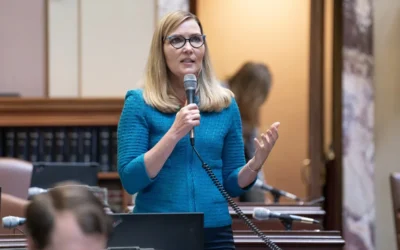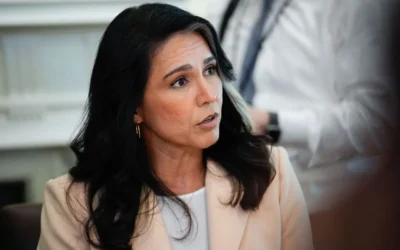Introduction
In an age where digital interactions can sometimes replace meaningful face-to-face connections, the story of a Belgian man who drove nearly 500 miles to meet his purported ‘future wife’ has sparked conversations around the complexities of online romance and the dangers of scams. This heart-wrenching incident highlights the emotional and financial vulnerabilities many face in the pursuit of love.
The Journey of Hope
Last week, Charles Dupont, a 38-year-old man from Ghent, Belgium, embarked on a nearly eight-hour drive to meet Sophie Vouzelaud, a French model and social media influencer. Over the course of several months, Dupont had formed an online relationship with Vouzelaud, leading him to believe that they were destined to be together.
Despite the red flags and the significant distance between them, Dupont’s hope and infatuation drove him to take the plunge and leave behind his everyday life for what he thought would be a fairy tale ending. Armed with flowers and dreams of a bright future, he made the trip that would forever alter his perspective on love and trust.
The Confrontation
However, upon his arrival at the designated meeting place—a cozy café nestled in the heart of Lyon, France—his expectations were swiftly shattered. Instead of the warm embrace of his long-sought love, Dupont was confronted by Sophie Vouzelaud and her husband, Marc, who were understandably alarmed by the sudden visit from a stranger who had driven such a great distance.
Volunteers of the couple, who had been made aware of the ongoing scam via social media and various reports, documented the encounter. Dupont, bewildered and distressed, explained his case, laying bare his intentions and dreams. A chilling realization dawned on him: his beloved Sophie was not a scammer, but his romantic aspirations had been manipulated by someone impersonating her online.
The Reality of Romance Scams
This unfortunate story is not just a tale of misguided romance, but a reminder of the growing and increasingly intricate world of romance scams. The Federal Trade Commission (FTC) estimates that in 2022, individuals lost approximately $1.3 billion to romance scams in the United States alone, a number that has been exponentially rising.
With the advent of social media and dating apps, scammers have increasingly capitalized on the vulnerabilities of individuals seeking companionship. They often use attractive photos and fabricated profiles to lure unsuspecting victims into emotional relationships, exploiting their trust for financial gain.
Sophie Vouzelaud’s Response
After the unexpected encounter, Vouzelaud took to her social media platforms to address the incident. With a heartfelt message, she urged her followers to remain vigilant and skeptical of anyone claiming to be romantically interested in them online. Her post emphasized the importance of verifying identities and being cautious about sharing personal information on the internet.
Vouzelaud expressed her sympathy for Dupont, acknowledging the emotional toll such scams can take. In her message, she underscored, “Love shouldn’t have to come with a question mark over its authenticity. It’s imperative that we protect ourselves and each other from falling prey to deceit. The internet can connect us, but it can also mislead us in ways too complex to fathom.”
Support for Victims
Knowing that the fallout from this experience significantly impacted Dupont’s mental well-being, Sophie and Marc offered their support to help him cope. They connected him with mental health resources and communities of individuals who have faced similar predicaments.
This act of kindness resonated deeply with Dupont, who later shared, “I came to Lyon with dreams of a love story, but I left with a lesson on the harsh realities of online interactions. Sophie and her husband’s kindness in the face of my naivete showed me that not everyone in the world is out to deceive. Their support will help me navigate my healing process.”
Coping with the Aftermath
Dupont’s journey is a vivid portrayal of the impact a romance scam can have on the victim. The emotional scars from such experiences run deep, manifesting not only as sadness or disappointment but sometimes as feelings of embarrassment, anger, and mistrust. As individuals like Dupont search for ways to move forward, they often muscle through the overwhelming sense of loss associated with trusting someone who doesn’t exist.
Support groups and mental health professionals encourage victims of romance scams to express their feelings and join communities that share similar experiences. With the power of storytelling and shared vulnerability, individuals can begin to piece together their lives, learning to distinguish between healthy love and the manipulations of the online world.
Raising Awareness
The story of Charles Dupont and Sophie Vouzelaud acts as a microcosm of a much larger societal problem, one that necessitates increased education and awareness. Organizations that focus on preventing online fraud, as well as law enforcement agencies, are ramping up their efforts to inform the public about the signs of a romance scam.
Key indicators of such fraud can include:
- Requests for money, often under the guise of an emergency
- Avoidance of video chats despite multiple requests
- Inconsistencies in personal stories or background information
- A sense of urgency that prevents the targeted individual from taking time to think things through
The Path Ahead
As for Dupont, he plans to return home and take time to heal. While the road ahead may be challenging, Dupont has decided to channel the emotional lessons from this experience into advocacy work, joining forces with organizations devoted to combating online scams to help prevent others from suffering as he did.
In today’s world, as technology continues to evolve, the lines between genuine connections and deceptive encounters can blur. However, by cultivating awareness and fostering discussions around romance scams like that of Charles Dupont, we can work toward a society that is not just digitally connected but also mindful and supportive in navigating the sometimes treacherous waters of online relationships.
Conclusion
The heartbreaking incident surrounding a Belgian man’s misguided journey to meet a French model serves as a reminder of the emotional turmoil that romance scams can wreak on individuals. With thanks to the compassionate response from Vouzelaud and her husband, Dupont not only gained insight but also a renewed sense of purpose. As more stories like his emerge, they galvanize movements toward increased awareness and caution in the complex digital landscape of dating and romance.







